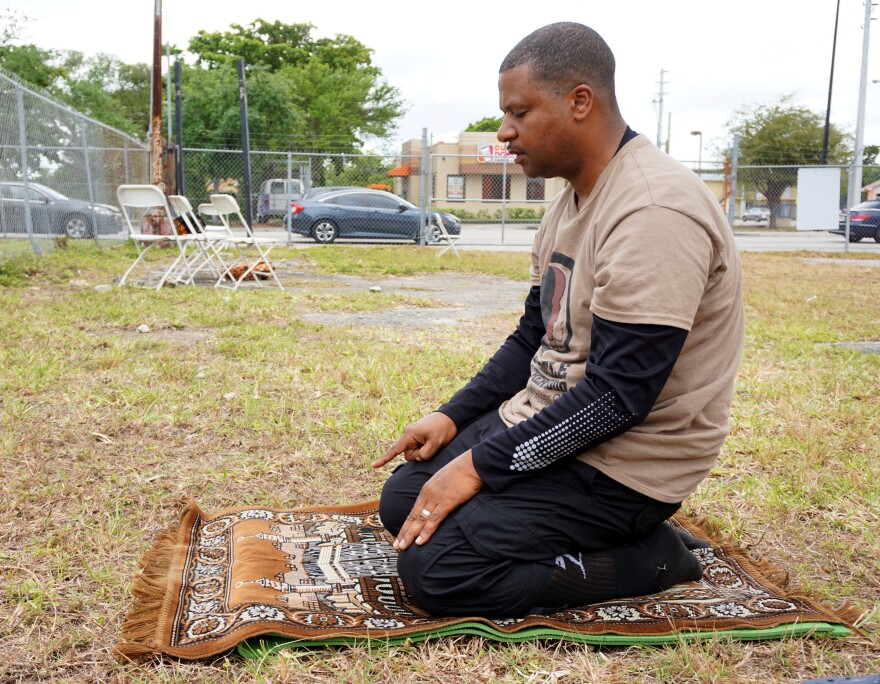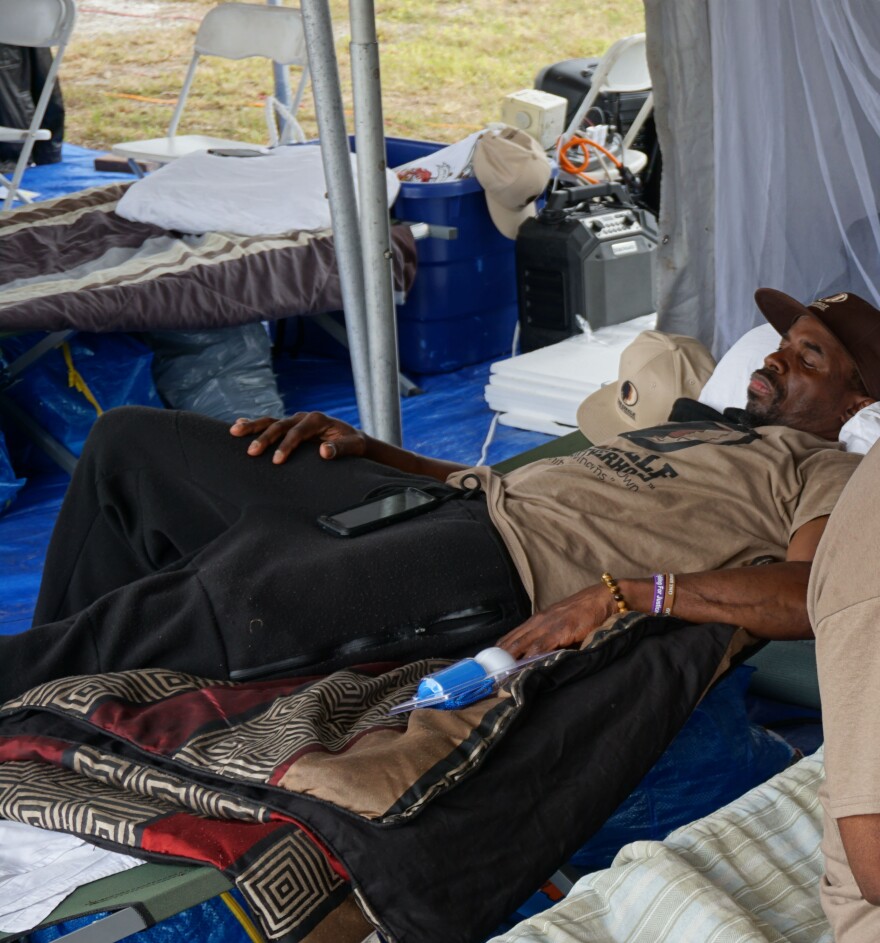Nine men rest on cots under a large white tent in Miami’s Liberty City neighborhood. They call themselves “The Hunger Nine.”
They’re on Day 12 of a hunger strike to draw attention to the gun violence that disproportionately impacts black neighborhoods in Miami-Dade.
The men are all members of the Circle of Brotherhood, a nonprofit group that mentors young people and promotes economic empowerment in the neighborhood. Since the men took over an empty lot on the corner of NW 62 Street and 12th Avenue, it has become a community convening space to mourn victims of gun violence and to workshop solutions.
“We want to bring attention to an issue that so many people have become desensitized to,” said Lyle Muhammad, executive director of the Circle of Brotherhood. “And so our message is to those who are shooting the guns to put those guns down and preserve our lives. The message is to have an internal dialogue with ourselves like we've never had before.”
Muhammad said the group's focus is the entire county, but this corner in Liberty City is at the center of many killings and nonfatal shootings.
Across the street is the Liberty Square housing projects, better known as the Pork & Beans, where elementary school kids fed up with shootings have staged their own protests, chanting “We don’t wanna die, stop the shooting.” Black hearses drive by this same corner carrying young black men to their funerals at Mount Calvary Missionary Baptist Church a few steps away. And a mural of Sherdavia Jenkins, a nine year girl old killed by stray bullets, can be seen from the lot where the hunger strike is happening.
As word gets out about the men’s mission to stop the killings, people have come from all over. Among them: local college students, a group from Parkland, Trayvon Martin’s parents, police officers, politicians and families who have lost loved ones to shootings.
WLRN spoke to some of the men participating in the hunger strike. Read their stories below:

Phillip Tavernier, member of "The Hunger Nine"
There's so many brothers and sisters that come by here on a regular basis and we see grieving mothers who come by here. And just being a conduit for their grief to be expressed and to be relieved and to carry some of that.
There is no end date set for this right now.
I believe that there needs to be conflict resolution centers. I believe that children need to learn conflict resolution. You know, they learn how to take tests in school, we desperately need to teach our young people how to resolve their conflicts without violence
We’re just taking it day by day. My heart has gotten stronger.
We have Christians here. We have Muslims here. We have agnostics here. We have those who believe in traditional African religions. And out of us nine, we represent a broad spectrum of our community—from the streets to the suites.

Anthony Durden, member of "The Hunger Nine"
I been out here [and] lost 15 pounds.
I was a product of the problem, at one point I used to be a gun toter, I used to be involved in street gangs. Carrying weapons was a part of my lifestyle growing up as a young teenager in the streets of California.
When people are going through things, sometimes people don't have the empathy to understand other people's issues and their plights and their struggles.
We're not just talking to the victims of violent crimes. We're also talking to the perpetrators about the crimes. We have compassion and empathy for them too because they are also victims. Because you never know what they come out of for them to make choices that they're making.
If you talk to the average person that has made bad choices and what they come out of, most times they come out of pain.
The outpouring from the community and the community support that we have had has been overwhelming. This here, this has become a sacred place. People have come here for healing.

Albert Campbell, member of “The Hunger Nine”
I'm one of the brothers that have done some things in this community that keeps me up at night.
I haven't killed anyone, but I don't know if the poison that I sold to our people led somebody to do something to get drugs. And I believe that my generation left an inheritance of bloodshed and murder for our current generation. It was a prayer that I prayed to God if he would let me out of prison that I would come back into my community and do all that I can.
I was released in 2016 [because of] the clemency project initiated by President Barack Obama.
I'm always emotional when I'm looking in a face of our young children because I don't want to see them on a [Rest in Peace memorial] T-shirt. I don't want them to have to spend all those years in prison.




